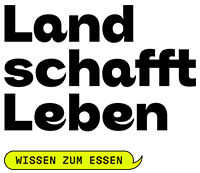The tomato is Austrians’ absolute favorite vegetable: on average, everyone eats over 30 kilograms per year. The fact that tomatoes make it onto our plates in such large quantities is also due to the many processed foods for which tomatoes form the basis, such as ketchup, sugo or tomato paste. But Austrian tomatoes are rarely found in these products. Most of the time these are imported tomatoes, most of which come from China. However, this is hardly obvious due to the lack of labeling requirements, says Maria Fanningerfounder of the Land Creates Life association:
“There are tons of Chinese tomatoes on Austrian supermarket shelves in the form of products such as ketchup and sugo. Almost no one knows this, because processed products still do not have to indicate where the raw materials come from. The origin of fresh tomatoes, on the other hand, must be clearly stated. It makes no sense to me to differentiate between fresh and processed tomatoes. Mandatory origin labeling should apply to processed products just as it does to fresh food.”
Misleading prohibited
Processed products do not have to indicate where the raw materials come from. Unless otherwise stated as part of a voluntary labeling, there is a high probability that the tomatoes in sauce, ketchup, etc. come from China or other countries such as Spain or Portugal. However, misleading information must not be provided. For example, if an Italian flag is depicted on a tomato sauce, but the tomatoes do not come from Italy, this must be stated.
Every third kilo of tomatoes comes from China
China is the world’s largest tomato producer. Every third kilo of tomatoes comes from China. The tomatoes from China are specially bred for processing and are mainly processed into tomato paste. This is transported by ship to Italy, where it is further processed and sold, among other places, to Austria.
OTS ORIGINAL TEXT PRESS RELEASE UNDER THE EXCLUSIVE RESPONSIBILITY OF THE SENDER FOR CONTENT – WWW.OTS.AT | LSL
